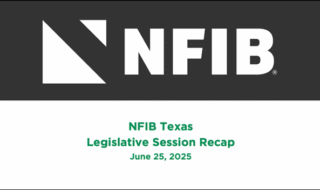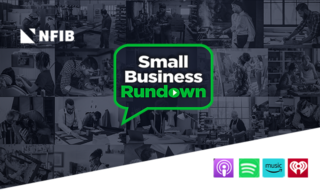May 18, 2021 Last Edit: May 8, 2025
How Federal Unemployment Benefits Are Hurting Small Business Recovery
Everyone is glad that the worst of the COVID-19 pandemic appears to be over. Now it’s time for Americans to return to work.
When the pandemic began and the unemployment rate skyrocketed to nearly 15%, Congress responded by providing additional unemployment benefits to those who had lost their jobs. These supplemental payments were essential to countless families to get through the crisis.
But now the economy is recovering, and those same enhanced federal unemployment benefits are contributing to staffing shortages. The issue has become a severe concern for small businesses. NFIB’s monthly survey found that 44% of owners could not fill open positions – the highest number on record, and twice the 48-year average.
It’s fast become the largest problem facing small businesses. The owner of nearly 30 hair salons in Iowa and Nebraska recently spoke of his hiring challenges, “It’s been very difficult to bring people back into the open positions. In fact, we’re starting to hear from customers who are angry because we don’t always have enough staff to serve them. Right now, we could use nearly 40 new people and we can’t fill the jobs quickly enough. It’s a mix of reasons but because of the extended and enhanced unemployment compensation and COVID-related issues, it’s easy for people to not work but still get paid.”
NFIB has called on state governors to opt out of further federal unemployment assistance. Owners would love to return their businesses to full capacity, but without qualified labor they’re stuck, and many say it’s now affecting their ability to serve their customers. Ending the federal unemployment assistance will encourage residents to re–enter the workforce and end the urgent staffing shortage.
However, the program is slated to last until September 2021, unless the state government decides to pull out earlier. Twenty-two states, including Alabama, Arkansas, Idaho, Iowa, Mississippi, Montana, North Dakota, and South Carolina, have done just that.
Connecticut, Arizona, Oklahoma, and Montana are offering a “return to work” pay bonus to incentivize state residents to go off unemployment and return to work. Idaho offered a similar program last fall. Most states, such as Georgia, Indiana, Kentucky, Maine, and Wisconsin have also reinstated a requirement that recipients must be actively searching for a job in order to continue receiving unemployment benefits.
In the rest of the country, NFIB continues to urge state governors to end their participation in the supplemental unemployment assistance federal program. For example, in Louisiana, NFIB State Director Dawn Starns McVea has urged the state government to do so in a statement.
“Our small business members were grateful a year ago when Congress agreed to help supplement unemployment payments to people who lost their jobs because of the pandemic, but that’s having the unintended side effect of discouraging some people from returning to work,” commented McVea. “Our economy is improving, but a lot of employers say they can’t find enough workers, and that labor shortage is beginning to affect customer service.”
In Oregon, NFIB state director Anthony Smith points out that federal Unemployment Insurance benefits are not the only factor contributing to the hiring shortage. “[Small businesses] also been struggling with a reopening framework that is based on county risk levels – one week you could be open, and then the next week your operations could be severely restricted or completely shut down again. It’s really hard to get employees back under those conditions, especially when there is little financial incentive for employees to return to work,” Smith said in a statement.
If you’re struggling to fill open positions, you can help NFIB inform lawmakers on the impact of public policies like supplemental unemployment benefits by completing our brief survey.
NFIB is a member-driven organization advocating on behalf of small and independent businesses nationwide.
Related Articles














